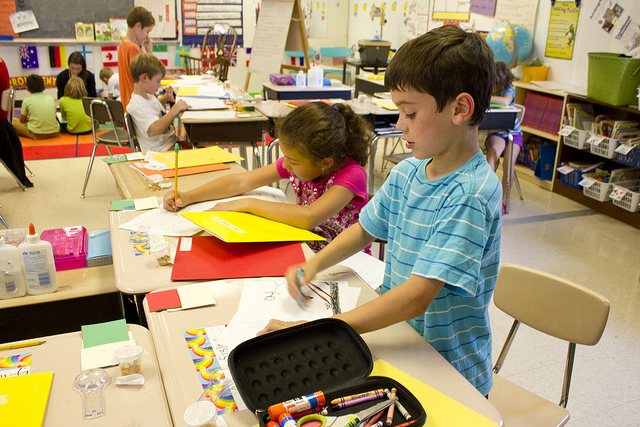This past spring I had the opportunity to conduct six continuing education sessions for PESI, a non-profit organization at the forefront of continuing education for psychologists, clinical social workers, speech and language therapists, occupational therapists, and mental health counselors. I presented “Innovative Strategies to Improve Executive Functions in Children and Adolescents” to a variety of thoughtful and engaged professionals who work with kids. Group work was conducted, in which I asked these professionals to describe the most effective traditional tools that they use to improve the executive functions of the children with whom they work, and hundreds of useful recommendations were given.
[cjphs_content_placeholder id=”73597″ random=”no” ]I have divided these recs into general categories that you might use to guide your own work. I would encourage you to look at this list as if it were the results of a survey of fellow clinicians. I am not offering detailed descriptions of many of these strategies, but I am including links to relevant blog posts and app reviews here on the LearningWorks for Kids website. You will see that there is overlap, that a few tech tools are suggested, and that some very common strategies are not listed. Strategies that are not included may not have been helpful to this particular group of clinicians, or they may have been considered so elementary as to not warrant discussion.
Traditional Tools Clinicians Use to Build Thinking Skills

Image: Flickr user Stephen Depolo
Academic and Focusing Skills
- Extra copies of textbooks at home
- Provide skeleton notes of what was learned in class that day
- Photocopy peer notes
- Student packs his/her own backpack and puts it by teacher’s desk for teacher (or an assigned classroom buddy) to look through
- Alternate preferred or non-preferred activities
- Assistance from others
- Delegate
- Daily Helper
- Pair up to repeat what was said
- Eye contact
- Listening
- Understanding
Communication Strategies
- Online classroom tools
- Edmodo (classroom blog and discussion board)
- Google Classroom
- Phone
- Group text messages and alerts
- Interactive lessons
- Communicate with parents
- Daily goals and tasks sheet
- Communicating with instructor
- Advocacy skills – asking and telling instructor when in need of help or for clarification
Following Directions
- Breaking directions down into individual steps, as a series of pictures or checklist
- Smaller step directive
- Index cards for individual to carry around
- Chunking
- Repeating back
- Writing it down
- Picture/Symbols schedule
- Ask a friend
- Sing directions to a melody
- Self-regulation (pause, play, rewind)
- Phone tones for task transitioning or to stay on task
- Pattern routines
- Connect new activities to old routine
Memory and Attention Strategies
- Rubber band on wrist used as a reminder
- Discrete schedule in locker for older children
- Social videotaping stories
- Homework assignments posted online (all mathematics assignments)
- Set of digital pictures to be used as visual cues as a reminder to complete tasks (picture directions)
- Color coded – folders, copy books, cubby labels
- Visual support
- Highlighting
- Breaks
- Getting up and moving around every so often
- Yoga
- Snack time
- Deliver note to office
- Transitions
- Phone to vibrate to get them to transition
- Task initiation
- Sustained attention
- Timer – beat the clock
- General Forgetfulness
- Different phone sounds for cues to change to a different activity
- Daily planner to write down tasks and homework
- Reminders and emails to parents
- Audio recording for tasks to be completed
- Forgets to bring homework home to complete
- Agenda and check lists at home
- Packing bag
- Phone/Alerts reminder
- Take pictures of assignments
- Homework sorting bins
- Forgets to bring homework back to school
- Parents help
- Check list at home
- Taking pictures of blank homework assignments
Metacognitive Strategies
- Journal or diary for daily reflection
- Long-term planning and thoughtful planning
- One step directions
- Self talk
- Verbal rehearsal
Organizational Skills
- Desk organization
- File folders and labels etc.
- Sticky notes
- Don’t throw away any class handouts or other assignments
- Graphic organizer
- Buddy system/use a friend to mimic organizational skills
- Monthly calendar/visual schedule
- Long-term projects
- Google Calendar or other app to sync with phone
- Schedule within a schedule, big schedule with smaller sub group subjects with their own schedules for example math and reading.
- Photo worksheets
- Can’t find stuff
- Home offices (folders at home)
- Color coded folders
- One place for doing homework
- One extra set of material from home
- Locker organization
- Disorganized
- Cleaning out desk
- File cabinet for documents
- Matching book covers and folders for subject material
- Different colored subject folders
- Velcro list of daily tasks separated into two columns labeled “To Do” and “Completed”
- Accordion folder organizer
- Binders
- Time at end of class to get things together and organize
- Time units break up the day into slots of time for designated activities and leave gap between from organizational as well as transitional time
- Online resources
- Evernote or other note taking apps, take a picture of your handwritten notes and digitally organize them into an electronic file cabinet
- Tech schedule
Planning Strategies
- Long-term projects
- One-on-one meetings with teacher to go over assignment details and deadlines to better understand work
- Calendar mapping
- Following directions
- Daily task sheet broken down into time periods
Self- Control Skills
- Periodic breaks
- Yoga
- Mindfulness
- Breathing
- Snack time
- Recess
- Stress Tracker or other mood tracker app
Tech Skills
- Long Term Projects
- Work tracker/Google Docs to share with student teacher and parent
- Electronic assignment submission
- Transitions
- GoNoodle website
- Learning computer Skills
- Creating folders
- Electronic organization
- Text friend to get assignment
- Parents micromanage
Time Management Skills
- Transitions
- Daily task sheet
- Phone timer
- Transition preparation
- Time limits on technology
- One minute warning
- Picture symbols
- Song for ending activity
- Visual timer
- Take a long time completing class work
- Work in small groups of two or three
- Review of daily schedule
- Rewards for accomplishments
- Supervision of time on technology
Featured image: Flickr user woodleywonderworks




